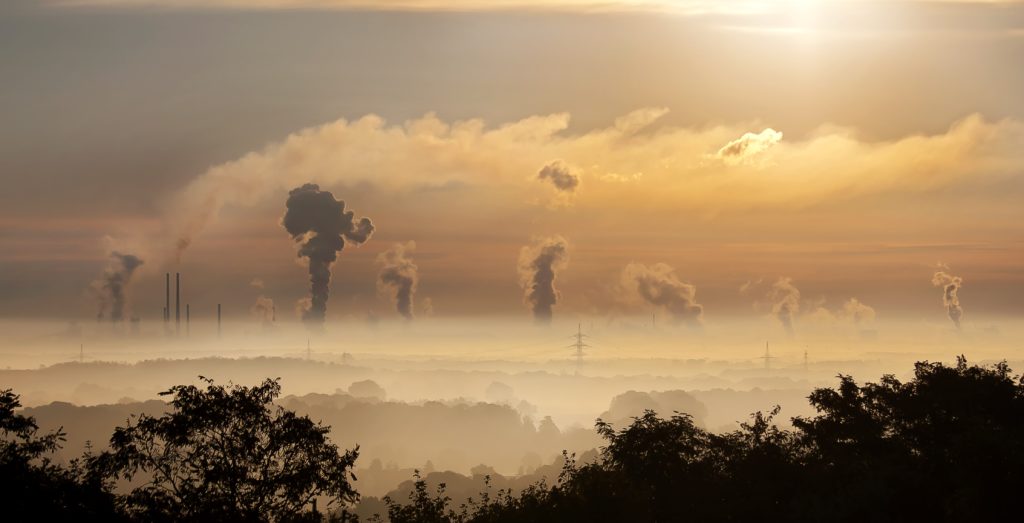With growing concerns about whether government is adequately responding to the impacts of climate change, citizens worldwide are bringing climate litigation cases to the courts.
This summer, the Mataatua District Māori Council (“the Māori Council”) filed an action with the Waitangi Tribunal to grant an urgent hearing against the New Zealand government. According to the action, New Zealand’s failure to adopt effective policies to address the threats posed by climate change violates its duty to protect the land, resources, culture, and customs of the Māori people.
The Māori Council’s case is the latest in the rising tide of global climate litigation. Citizens are increasingly holding governments accountable for failing to adopt adequate policies to protect the climate and future generations from the harms and dangers caused by climate change.
In New Zealand, the government’s main response to climate change has been the establishment of the Emissions Trading Scheme (ETS) in 2007. The ETS puts a price on greenhouse gas emissions to create a financial incentive for businesses to reduce emissions. The system also encourages landowners to plant trees to earn emissions trading units, in an effort to absorb carbon dioxide from the atmosphere.
But the Māori Council argues that the ETS has failed to get emitters to reduce their greenhouse gases emissions. Importantly, the Council claims that the ETS has actually disincentivized emissions reductions, as New Zealand has allowed emitters to continue purchasing removal units — often of dubious quality — from cheap international carbon markets, lowering the cost of domestic emissions units, which has not only discouraged active emissions reductions, but also removed the incentive for land owners to grow forests to earn trading units. In addition, the applicants claim that the ETS has not controlled the main source of greenhouse gas emissions — the agricultural sector.
The Māori Council also argues that there is a gap between New Zealand’s public commitments to reduce emissions and their actual initiatives to do so. For example, the United Nations recommends that developed countries adopt emissions reduction targets of 25% to 40% below 1990 levels by 2020. According to the Māori Council, however, the government of New Zealand set their emissions reduction goal at a mere 5%. Applicants also argue that, under the Paris Agreement, New Zealand’s commitment to reduce emissions by only 11% from 1990 levels by 2030 shows that the country is far away from achieving the objective of developed countries to achieve an 80% to 90% reduction by 2050.
Finally, the Māori Council maintains that the New Zealand government’s coal-based energy production, promotion of oil and gas exploration, deforestation of lands to transform them into farms, and lack of individual incentives to reduce emissions are further examples of the government’s failure to address the threats of climate change.
The Māori Council argues that New Zealand’s inadequate efforts to reduce emissions will affect Māori communities and cultural sites affected by rising seas and increased water scarcity and will impact the livelihoods of the Māori, including fisheries and the forestry industry.
The applicants assert that the New Zealand government has a legal obligation to the Māori to protect the common property of all citizens. This obligation arises under the “public trust doctrine,” a legal principle recognized in American common law. The Public Trust Doctrine is the duty of the government to act as trustee for present and future generations and to maintain the integrity of cultural and natural resources for public use. Over time, the courts have held that alienating or destroying the public trust would violate one of the most essential purposes of government: protecting natural resources for the common benefit. The principle is at the heart of another prominent climate case — Juliana v. US, or “Our Children’s Trust.”
In the US, questions about the role of the courts in deciding the obligations of the state to protect against climate change are being argued alongside procedural questions about the appropriate exercise and balance of powers among the judicial, legislative, and executive branches.
These legal principles are the building blocks, both in substance and approach, that are shaping the future of global climate litigation. For example, eight amicus briefs — including one by CIEL and ELAW — recently filed with the Ninth Circuit in the Juliana v. US case address the evolving international jurisprudence that supports the fundamental right to a climate capable of sustaining human life, the proper role of courts in challenging other branches of government through a system of checks and balances, and the public trust doctrine, among other arguments in support of petitioners’ claims.
For now, the Māori Council awaits a decision on whether its claims will be considered before New Zealand finalizes its emissions targets under the Paris Agreement in 2020. Worldwide, potential litigants and their counsel will likely be looking to the decision to inform future arguments. The decision will also serve as a warning about the risk of litigation to potential defendants, including governments with expansive fossil fuel extraction policies that undermine nationally determined contributions (NDC’s) to reduce greenhouse gas emissions.
By Patricia Quijano Vallejos, Legal Intern, and Lisa Anne Hamilton, Director, Climate & Energy Program
Originally posted on November 1, 2017

